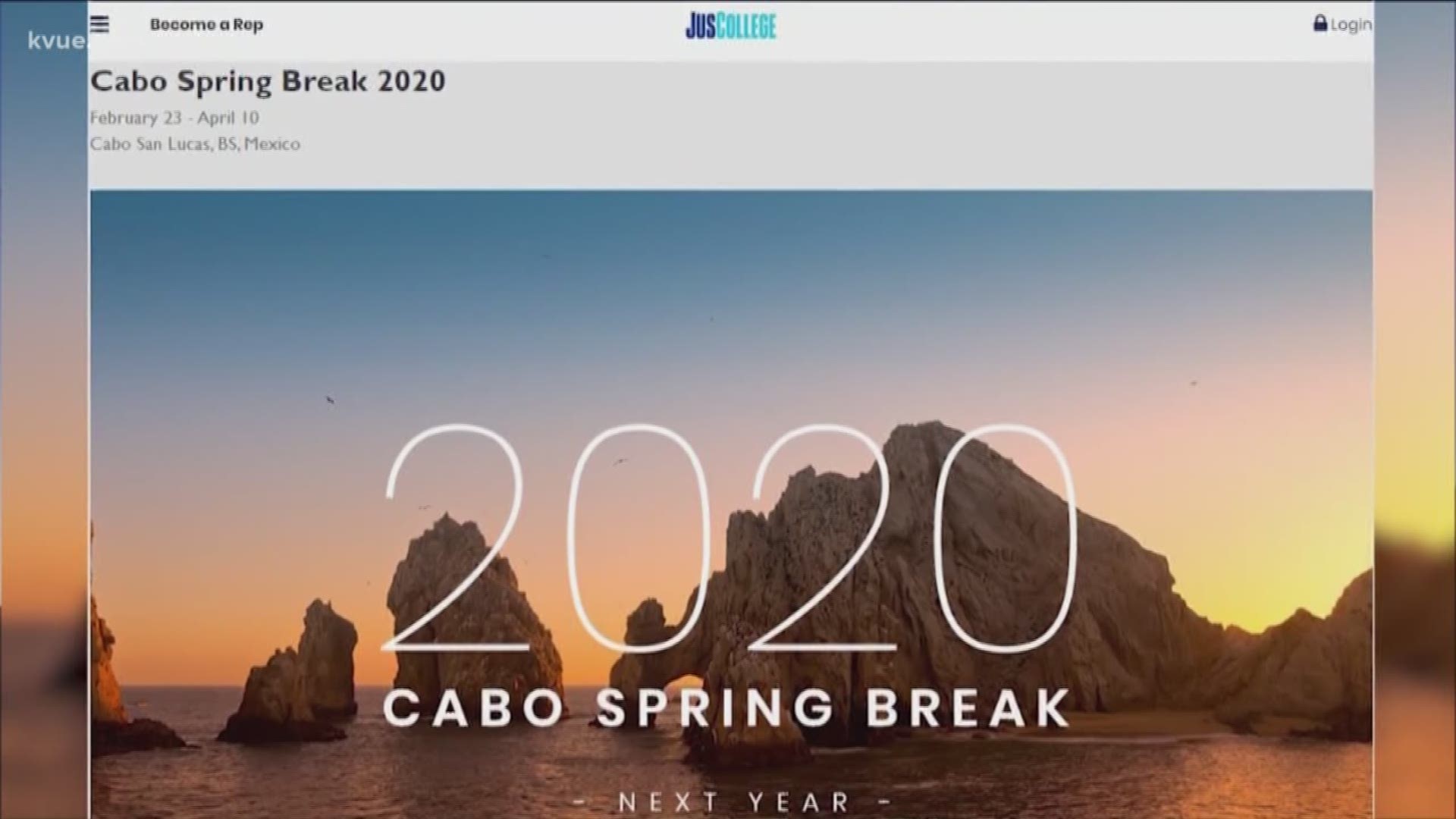AUSTIN, Texas — West Campus is now a hot spot for COVID-19 in Austin after 49 students who traveled to Cabo for spring break have tested positive for the coronavirus.
The neighborhood right next to the University of Texas campus is largely populated by college students and many of the 211 students who traveled to Cabo live there.
"We have a hot spot in our community right now in the West Campus area," said Austin Mayor Steve Adler in a live Q&A interview with KVUE April 1.
The majority of these students reportedly returned from Cabo March 19 on a charter flight. The travelers went through the main terminal at the Austin airport when they departed and returned to Austin.
RELATED:
On Tuesday, Austin Public Health reported there were 28 confirmed cases of COVID-19 from the Cabo trip, and UT officials said that number grew to 44 cases Wednesday night. On Friday, the university confirmed at least 49 have now tested positive.
"Preliminary numbers indicate that that's growing," Adler said. "So they've come back and more of them had contracted the virus."
Adler said he expects to see this number continue to grow in the area. He urges those students to isolate themselves as the City works to further help the community.
"If we can contain that, if the people that came back positive help the community by limiting interactions, and as we focus on the hot spots, focus on what's happening through the community, we'll know what further steps we need to take," Adler said.
In a video released by UT April 1, Dean of Students Soncia Reagins-Lilly and Terrance Hines, chief medical officer for University Health Services, explained the importance of social distancing amid the spike in cases among students.
“Please, please take this matter seriously and do your part," Reagins-Lilly said in the video. "Please practice social distancing and adhere to all of the public health guidelines that have been outlined for you."
Hines said it is important for students to note while some young people have only had mild symptoms, others have had very serious infections requiring hospitalization.
"Refusing to follow those rules not only puts individuals at risk but others around them," Hines said in the video. "Health care workers risk their lives to take care of us by going to work. They can’t stay home, so the rest of us should."
PEOPLE ARE ALSO READING:

